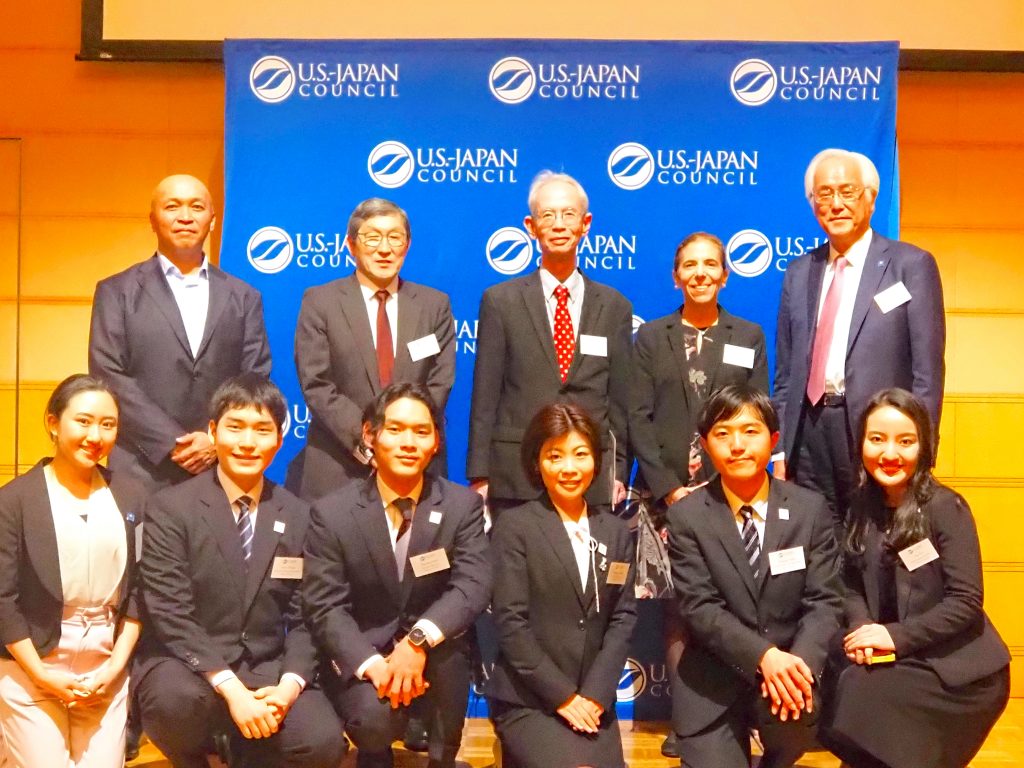
On February 22, the twenty-ninth U.S.-Japan Council Business Advisory Board (BAB) Meeting was held at the Tokyo American Club. It was the first in-person BAB gathering in three years.
The Council welcomed keynote speaker Board of Councilors Member Professor Naoyuki Agawa (Keio University). Jenifer Rogers (General Counsel Asia of Asurion Japan Holdings) moderated the dialogue, titled “Is the Japan-U.S. Alliance As Solid As Ever? ~Impact of Bipolarization of America and Japan’s Reluctance to Fight.” The event attracted more than 70 business leaders and six TOMODACHI alumni.
Chairman of the Business Advisory Board Masaaki Tanaka, Chair of the USJC Board of Councilors (Japan) Scott Sato and Representative Director of USJC (Japan) Henry Takata kicked off the evening by delivering welcome remarks that included words of thanks for the support of old and new members.
Takanori Nagatomo (Representative Attorney at Nagatomo International Law Firm), Mari Kano (Specially Appointed Professor at Showa Women’s University) and Yasumasa Nagamine (Justice of the Supreme Court of Japan) all delivered short self-introductions as is customary during BAB events.
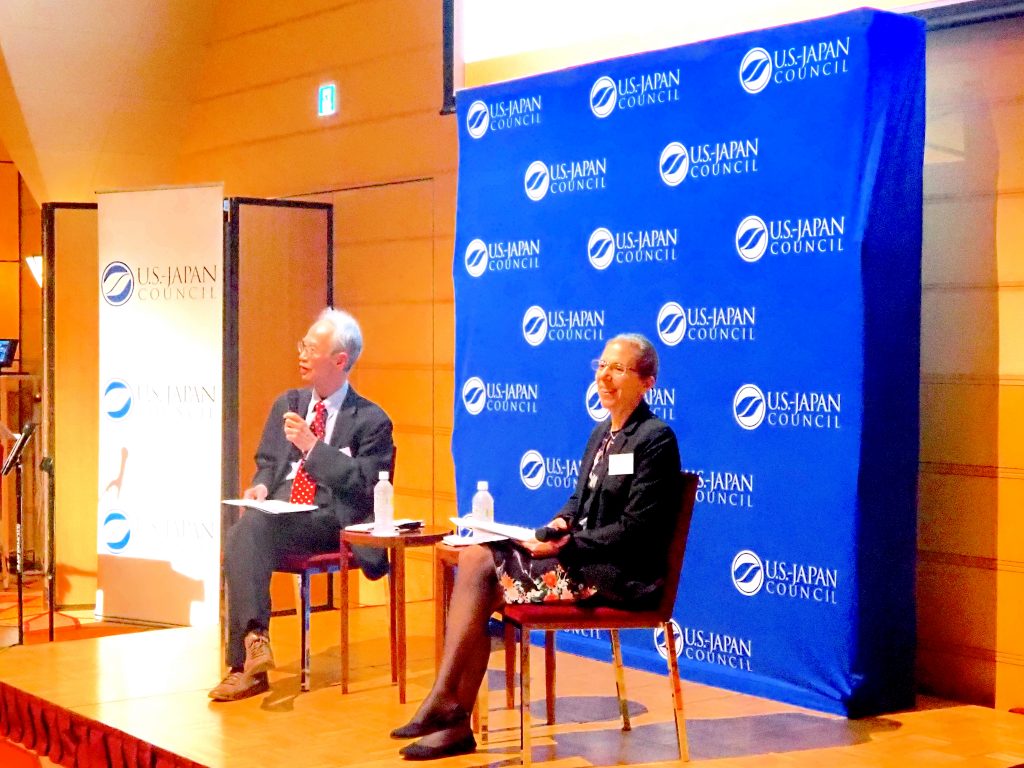
At the beginning of the fireside chat, Ms. Rogers asked Professor Agawa about the current state of the alliance between Japan and the United States. Professor Agawa drew from the results of polls conducted by the Japan Cabinet Office and the Ministry of Foreign Affairs of Japan (MOFA) to emphasize the positive public view both countries maintained in regard to the alliance.
Professor Agawa also pointed out that despite the positive public view, both the polarization of democracy in the United States and the Japanese public’s apparent unwillingness to fight are leading to uncertainty. The attack on the United States Capitol, he continued, is one of the iconic examples of the polarization of democracy in the United States.
Despite the uncertainty he outlined, Professor Agawa expressed optimism when asked if the U.S.-Japan alliance would remain stable despite the domestic division and conflict in the United States. The U.S.-Japan alliance, he argued, is more critical than ever, especially in light of the war in Ukraine and the state of China-Taiwan relations. The fireside chat wrapped with a consensus that both Japanese and Americans view the alliance in a positive light and that the alliance between both countries remains strong.
Following that, the audience actively engaged with speakers through a Q&A session and enjoyed a reunion and meeting new members during the networking dinner.
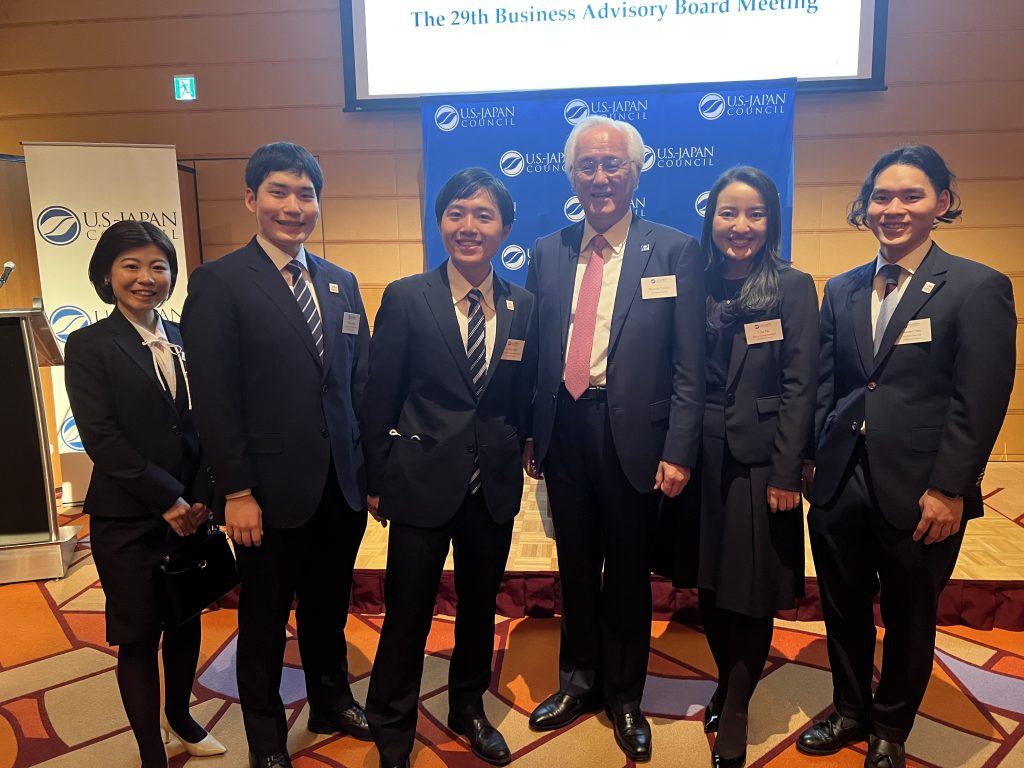
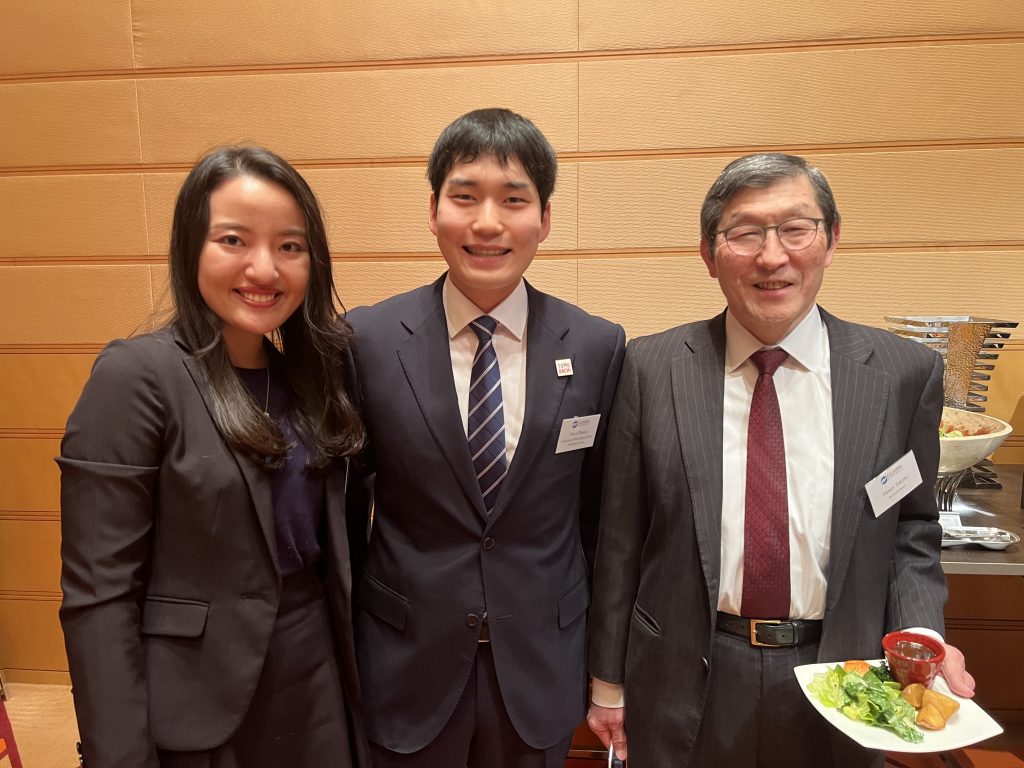
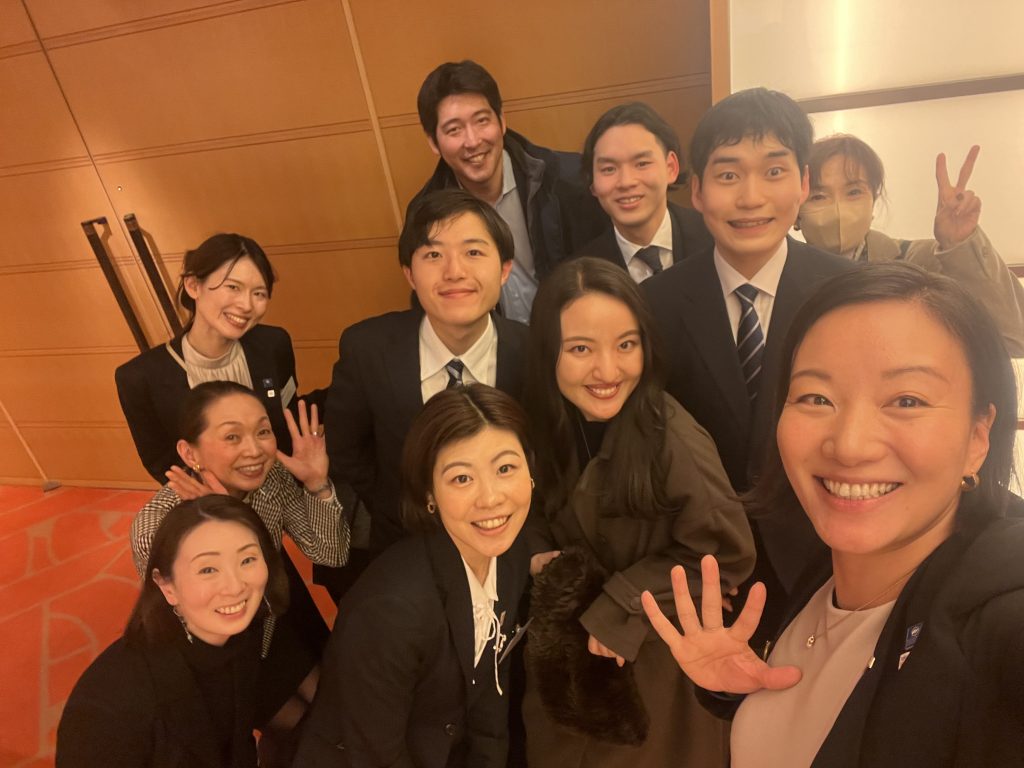
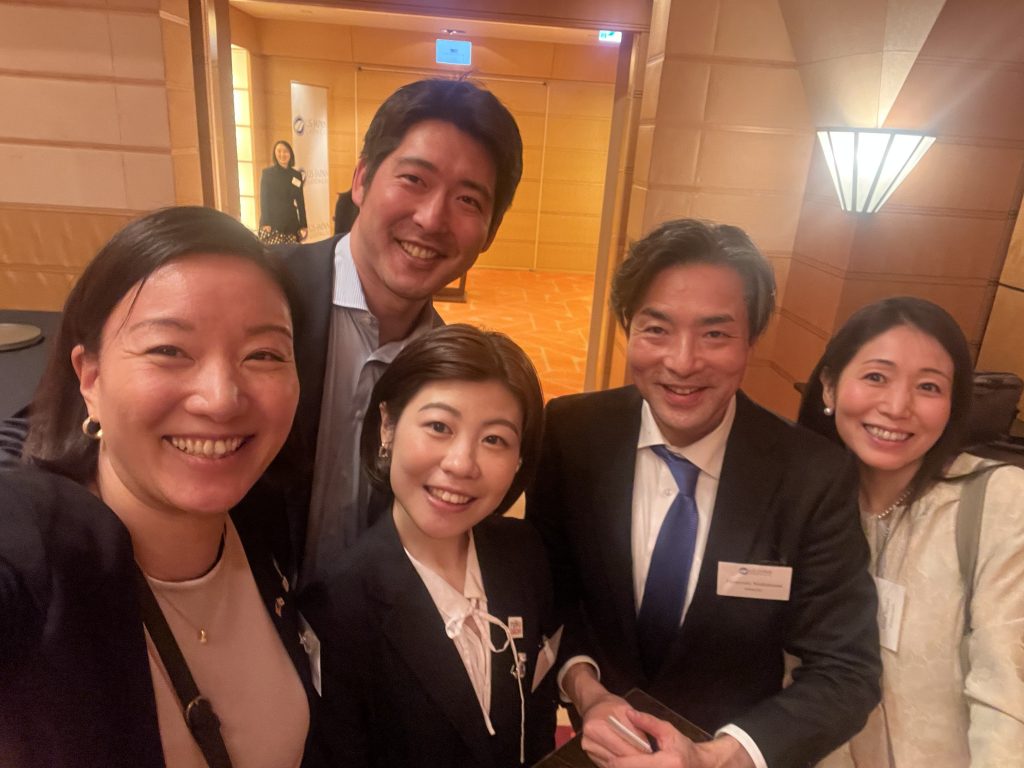
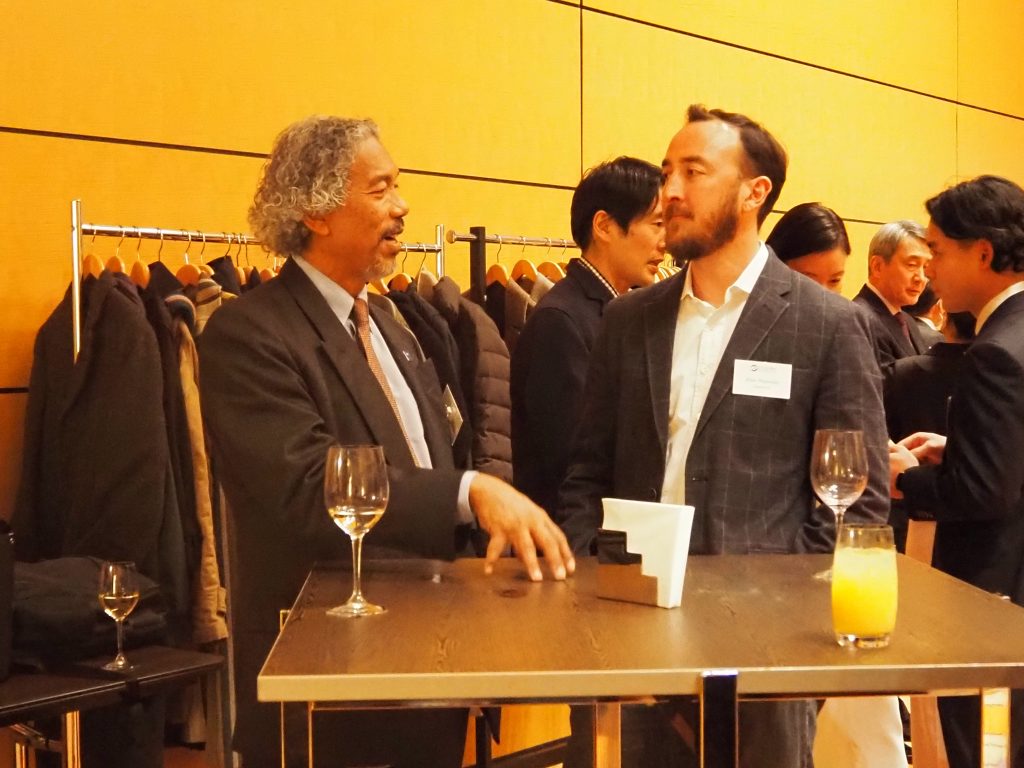
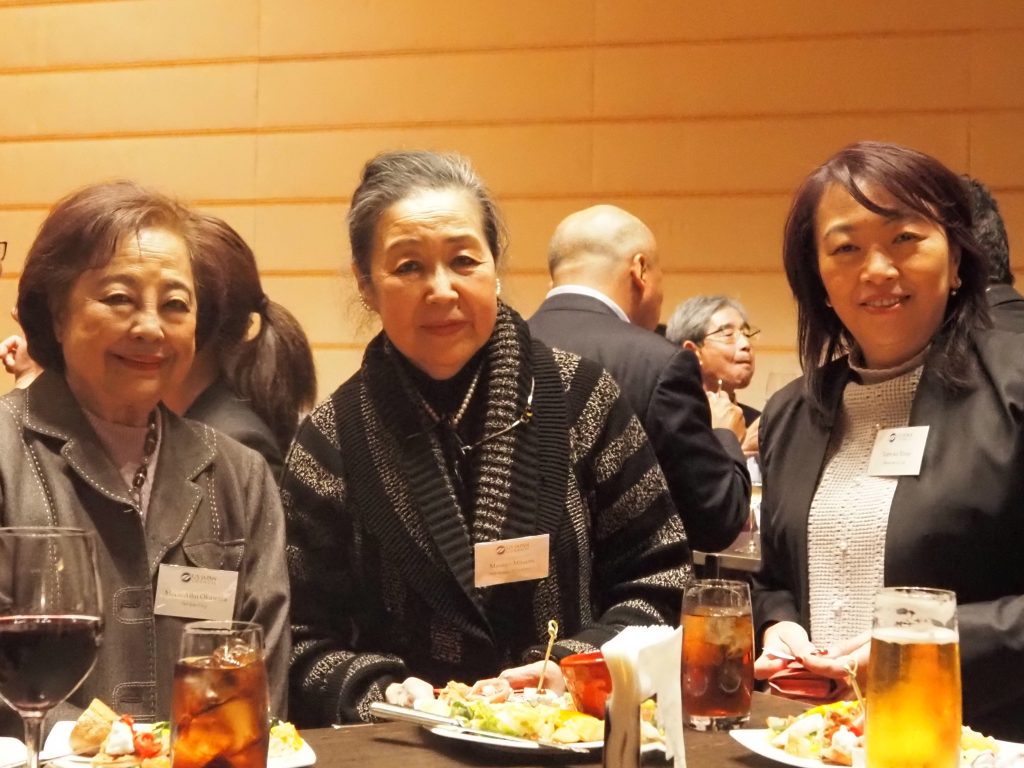
Reflecting on the fireside chat, TOMODACHI Sumitomo Corporation Scholarship Program alumnus Yasunori Seki shared that he was prompted to consider the U.S.-Japan relationship, in particular, due to Professor Agawa’s assertion that “the relationship needs to be beneficial for both nations in terms of security.”